What is Digital Transformation in Manufacturing Business? Simple Definition
Manish Kumawat
Last Updated on: 07 October 2025
Changes and transformations are essential for continuous growth and success in any business. Successful businesses, particularly in the manufacturing industry, always look for better ways to improve and grow. One common question they ask is what is digital transformation in manufacturing, as it plays a key role in staying competitive. If you want to move to the industry's front line, it's important to understand and go through the right kind of transformation. The major types of business transformations are:
- Digital Transformation
- Process Transformation
- Organizational Transformation
- Strategic Transformation
- Cultural Transformation
- Operational Transformation
Here we will discuss all the relevant topics of the most important digital transformation. Yes, definitely this will be 100% beneficial for your manufacturing business.
What is Digital Transformation in the Manufacturing Business?
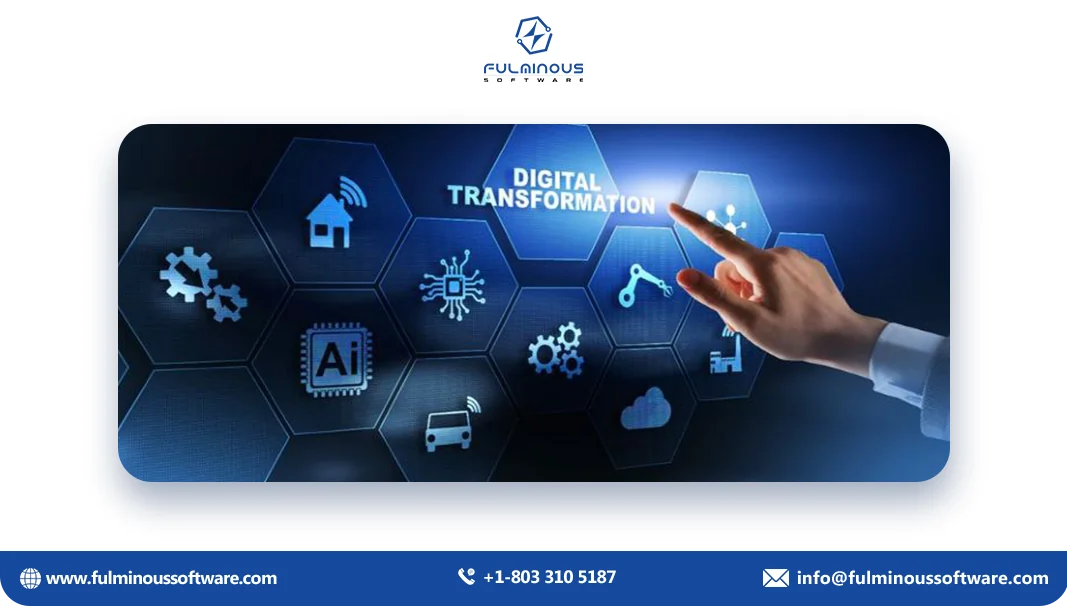
Don't get confused with complex terms like ‘digital’ and ‘transformations’!
Think of a factory where robots are building products, a computer tells you exactly how much material you need to order, and your machines can talk to each other and tell you when they're feeling sick or need a tune-up. That's digital transformation in action!
Digital transformation in manufacturing is basically about using technology to make factories smarter and more efficient. It's like giving factories a super-powered upgrade. It's using things like the Internet of Things (IoT) to connect machines and get real-time data.
So, in short, digital transformation is about making factories more high-tech and awesome!
Let’s Begin with the Latest Data
See this latest data to know the relevance of the topic we are discussing:
- The global market for digital transformation is projected to expand at a compound annual growth rate (CAGR) of 16.5% from $469.8 billion in 2020 to $1,009.8 billion in 2025. (source)
- Based on forecasts from Statista, it is anticipated that global spending on digital transformation will amount to $3.4 trillion by 2026. (source)
- Manufacturing digital transformation, according to McKinsey, may increase throughput by 10% to 30%, lower costs of quality by 10% to 20%, and reduce machine downtime by up to 50%. (source)
- A PwC analysis revealed that, in spite of these advantages, barely one-third of manufacturers have advanced past the planning or early phases of digital transformation, missing out on important potential. (source)
- Production Cost Reduction: Digital industrial transformation has, in certain situations, lowered manufacturing costs by as much as 70%, according to a World Economic Forum (WEF) report. Reductions in costs for most manufacturers fall into the range of 15% to 30%, demonstrating the substantial effect of digital transformation on profits. (source)
- Increase in Throughput: The WEF report claims that the digital transformation has caused many factories to more than quadruple their productivity. (source)
- Labor Productivity Increase: 15% to 30% more labor is produced in industry as a result of digital transformation, per a McKinsey report. (source)
- Enhancing Predictive Accuracy: McKinsey claims that digital transformation increases manufacturers' forecasting accuracy by 85%. (source)
Why Does Digital Transformation Matter in the Manufacturing Business?
The data shown in the last session is enough to prove the importance of digital transformation. Even though, let’s have a deep look at its relevance.
- Increasing Global Competition: If you are a manufacturing business owner, you know it! Manufacturers face tough competition from around the world. So you need digital transformation to stay ahead.
- Changing Customer Expectations: Customers now want faster delivery and customized products. These demands can be met quickly and accurately with digital transformation.
- Need to Improve Operational Efficiency: Digital technologies streamline production, reducing waste and downtime. Manufacturers are able to manufacture more with fewer mistakes and at a lesser cost.
- Required Data-Driven Insights: Intelligent devices gather and evaluate information instantly. Better business decisions, problem-solving skills, and process optimization are all displayed by manufacturers.
- For Innovation and Growth: Digital transformation enables rapid testing of new ideas. As a result, firms are able to expand and maintain their competitiveness.
- Meet Sustainability Goals: Digital tools help reduce energy use and waste. Manufacturers may run their businesses more sustainably and increase earnings and environmental benefits by optimizing their resource use.
- Follow Regulatory Compliance: Strict regulations require accurate tracking and reporting. While preserving seamless, effective operations, digital solutions guarantee that manufacturers adhere to regulations.
- For Workforce Empowerment: Digital transformation equips workers with better tools and information. Teams are able to concentrate on creative work as a result, which facilitates work and boosts production.
Advantages of Digital Transformation in the Manufacturing Business
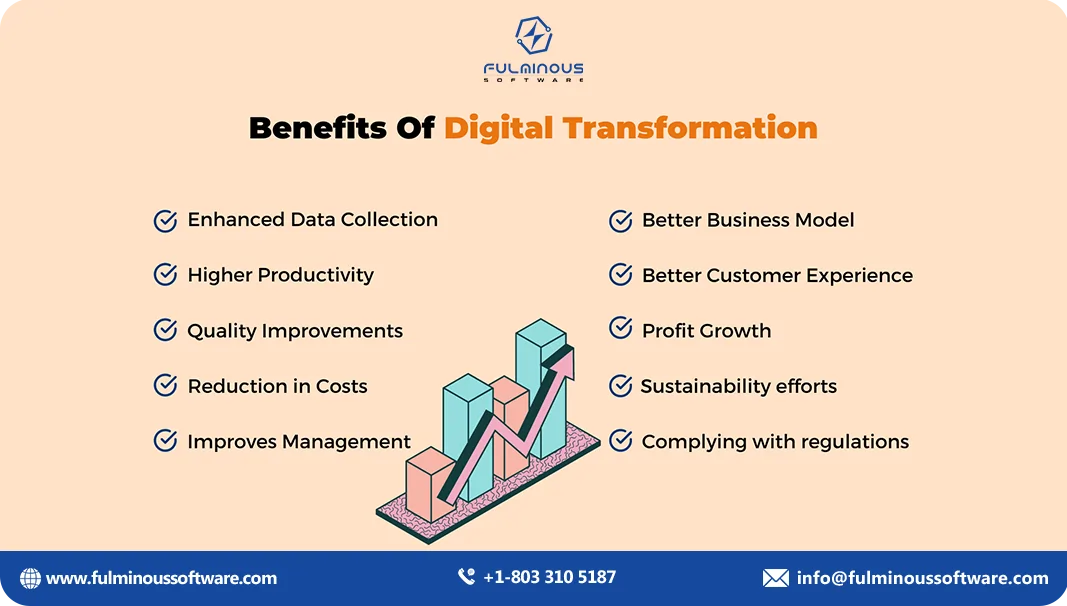
When you go ahead with a big business transformation, you need to know its benefits. Digital transformation is like giving your factory a super-powered upgrade. Here's why it's important:
- Makes things faster and cheaper: Digital tools help machines work together smoothly, so you can make more stuff with less effort and waste.
- Saves you money: Automation and smart tech can help you cut costs and make more profit.
- Makes you more flexible: You can quickly change how you make things to meet new customer needs.
- Makes your stuff better: Digital tools help you make things with fewer mistakes and higher quality.
- Helps you make smart choices: You can get real-time data to make better decisions and fix problems faster.
- Lets you be creative: You can try new things and come up with cool new products.
- Keeps your workers safe: Automation and digital monitoring can help prevent accidents.
- Makes your customers happy: You can quickly meet your customers' needs and offer them cool, personalized stuff.
Basically, digital transformation helps your factory be more efficient, profitable, and awesome!
What If You Ignore the Digital Transformation of Your Manufacturing Business
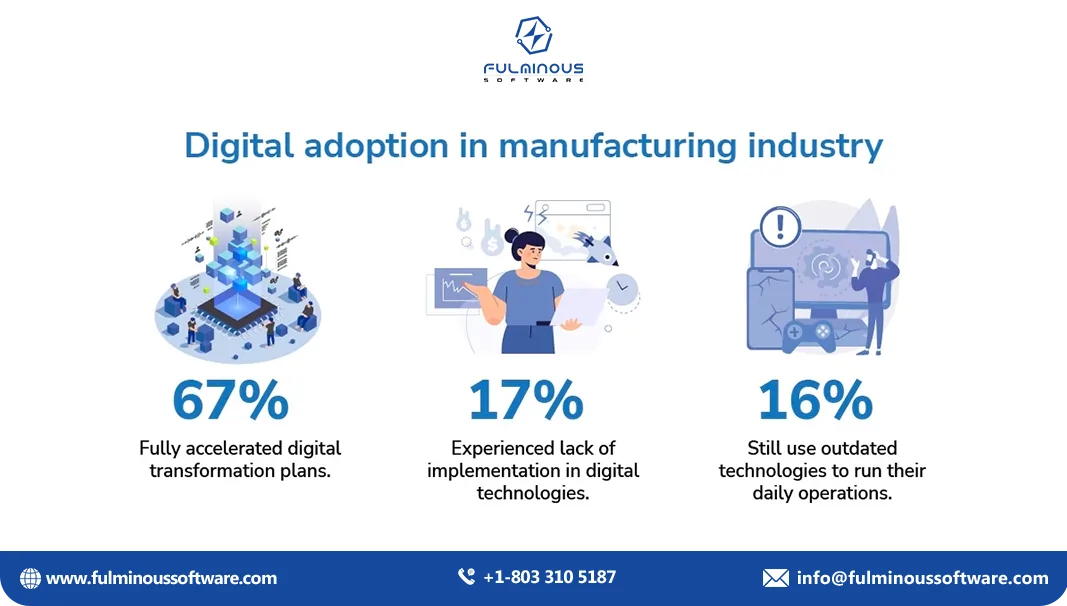
At the same time, you need to know the other side too. Ignoring digital transformation in your manufacturing business can have significant consequences. Here are a few potential outcomes:
- Loss of competitiveness: As other businesses adopt modern technology to improve efficiency and quality, your outdated methods may make it difficult to compete on price or delivery times.
- Increased costs: Manual processes can lead to errors, waste, and inefficiencies, ultimately driving up costs. Automated systems can help reduce these issues.
- Difficulty attracting and retaining talent: Young, skilled workers are often drawn to companies that embrace technology and innovation. A traditional, outdated manufacturing environment may struggle to attract and retain top talent.
- Reduced customer satisfaction: Delayed deliveries, lower quality products, and poor customer service can lead to dissatisfaction and loss of business.
- Increased risk of disruption: Unexpected events, such as supply chain disruptions or equipment failures, can be more difficult to manage without the flexibility and resilience provided by digital technologies.
In essence, ignoring digital transformation can put your manufacturing business at a significant disadvantage in today's competitive landscape.
Technologies Powering Digital Transformation in Manufacturing
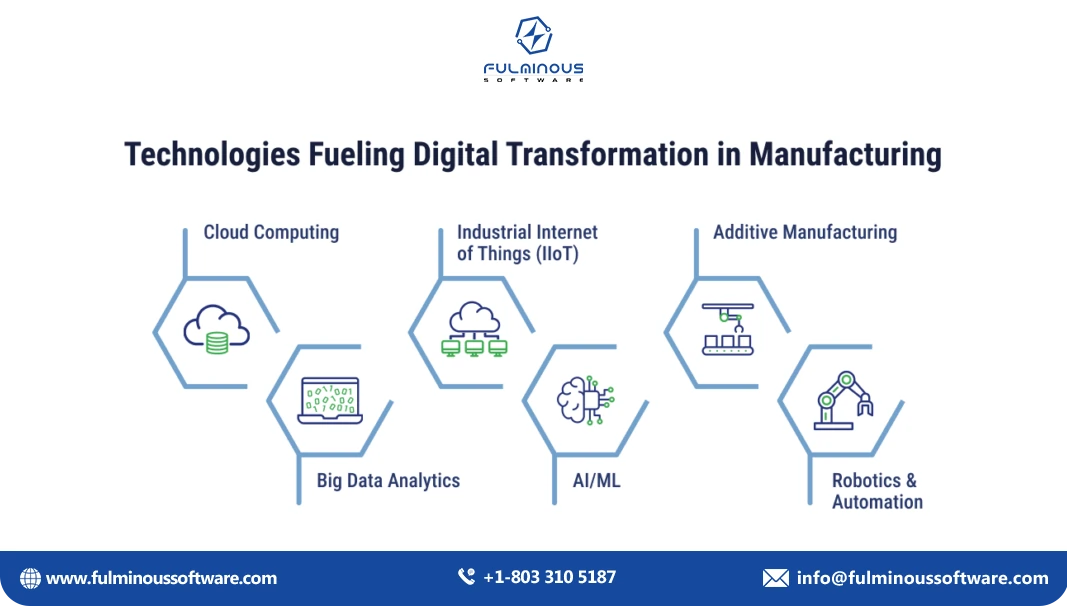
| Technology | How it works? |
|---|---|
| IoT (Internet of Things) | Imagine your machines could talk to each other. That's what IoT does. IoT connects them, so they can share information and help you keep an eye on things. |
| Artificial Intelligence (AI) | AI is much more than a smart computer that can think and learn. Artificial Intelligence (AI) helps factories figure out problems, make better decisions, and work more efficiently. |
| Automation and Robotics | Robots and automated machines can do repetitive tasks really fast and accurately. Automation and Robotics help manufacturing factories make things faster. |
| Cloud Computing | Think of it as a super-powerful computer that you can access from anywhere. Cloud Computing helps factories store and share information easily. |
| Big Data Analytics | This is like a magnifying glass for data. Big Data Analytics helps factories find patterns and trends in huge amounts of information. |
| 3D Printing | This is like a magic machine that can create objects from a digital design. 3D Printing is great for making prototypes and parts quickly. |
| Digital Twins | Digital twins are like virtual copies of real-world things. Factories can use them to test changes and see how they'll work before they actually do them. |
| 5G Connectivity | 5G networks are like a super-fast internet connection. 5G networks help machines communicate quickly and reliably. |
Real-World Examples of Digital Transformation in Manufacturing
Do you know leading companies in the manufacturing industry are experiencing excellent results after going through digital transformation? Let’s see some of them:
- Siemens:
Siemens uses digital twins to create virtual models of their factories. They test changes on the digital model before making them in real life, reducing risks and costs.
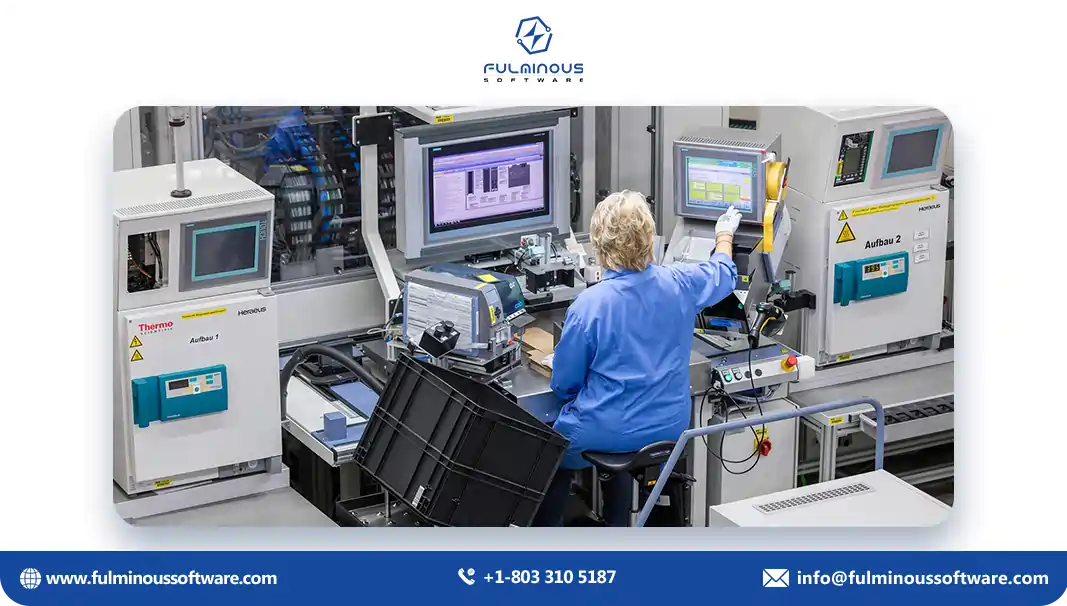
- General Electric (GE):
GE uses IoT and AI to monitor their equipment in real-time. This helps them predict issues before they happen and keep machines running smoothly without costly breakdowns.
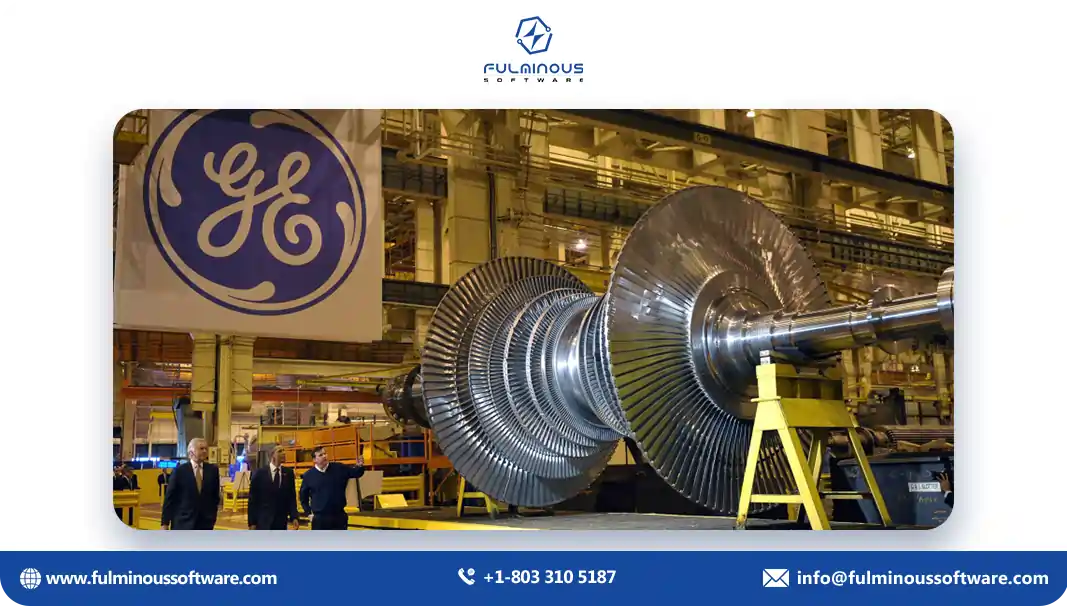
- Ford:
Ford uses 3D printing to quickly create car parts and prototypes. This allows them to test new designs faster, speeding up the production of new vehicles.
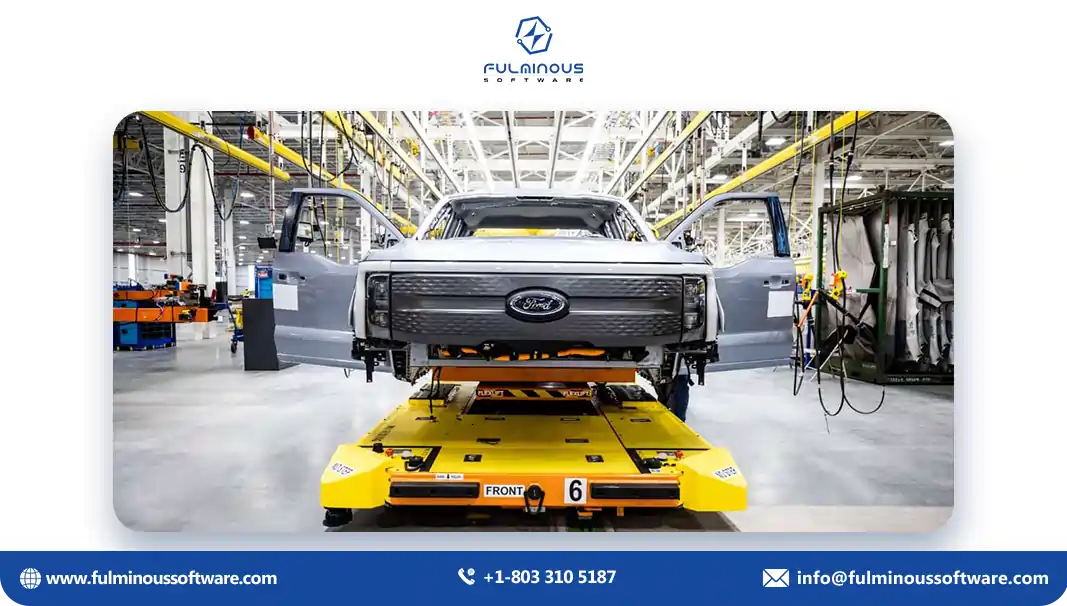
- Tesla:
Tesla’s factories are heavily automated with smart robots and AI. These technologies work together to produce electric cars more efficiently, making Tesla one of the fastest-growing car companies.
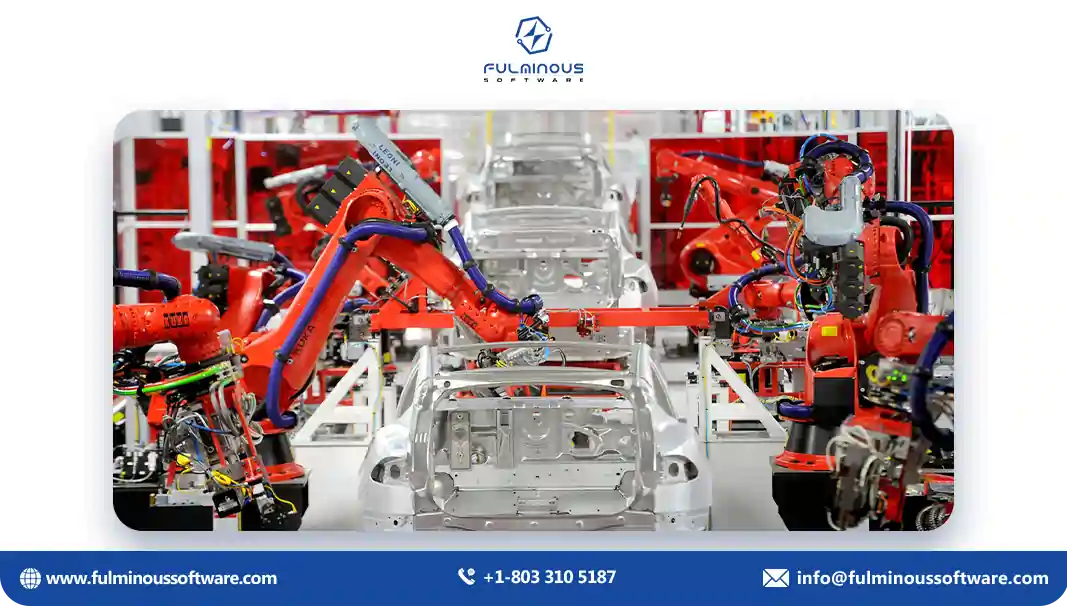
- Unilever:
Unilever uses AI and data analytics to optimize its supply chain. By analyzing data, they reduce waste, improve product quality, and ensure their products reach stores faster.
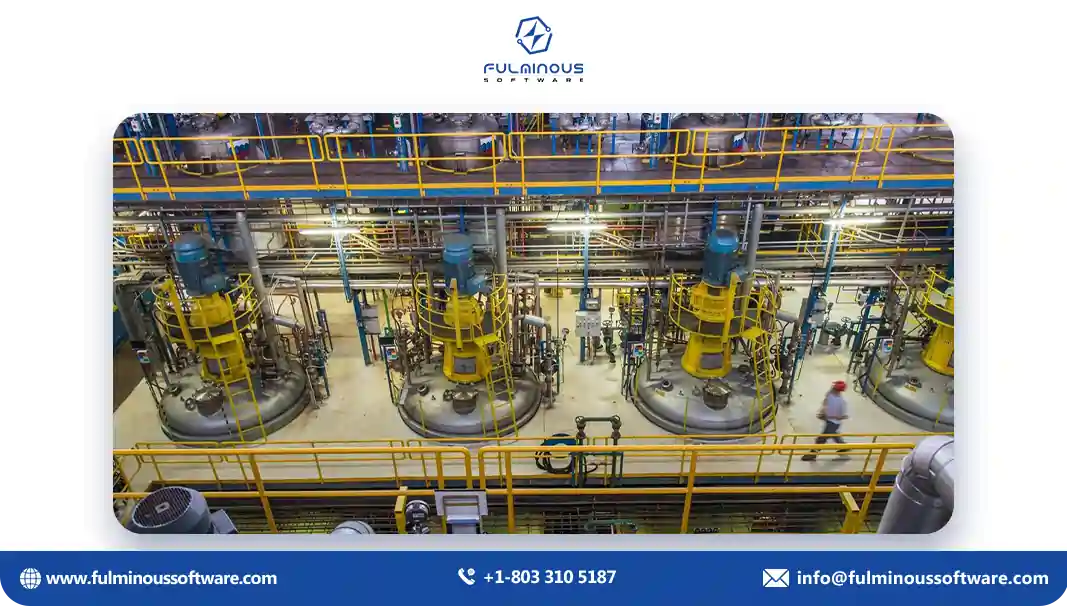
- Honeywell:
Honeywell uses a digital transformation to track and control factory operations from a central system. This gives them better visibility and helps them make quick adjustments when needed.
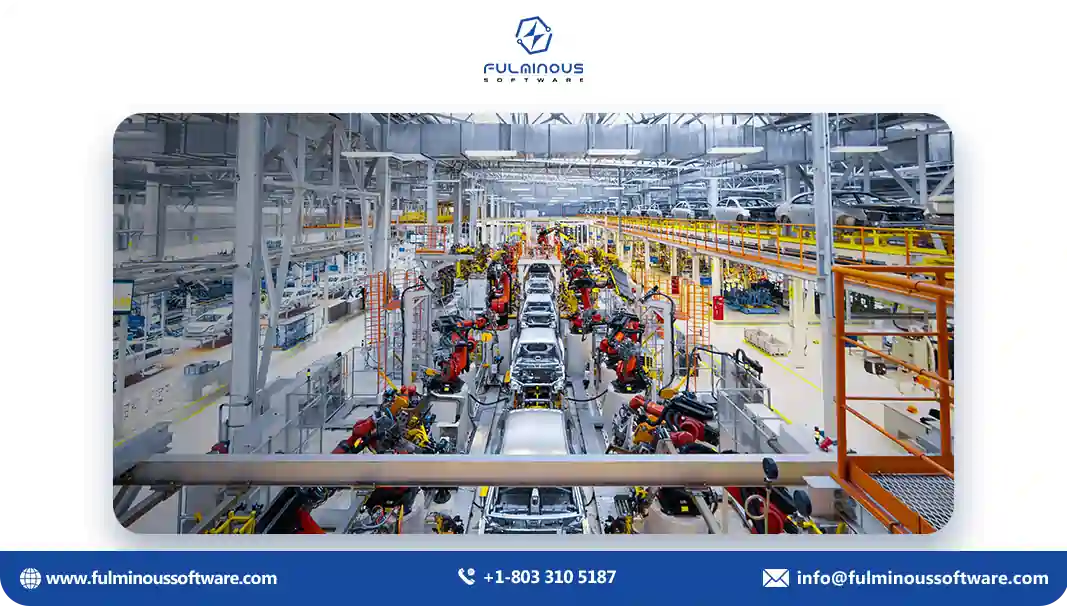
- Caterpillar:
Caterpillar uses IoT sensors on their equipment to monitor performance. This helps them offer better maintenance services and improve the lifespan of their heavy machinery.
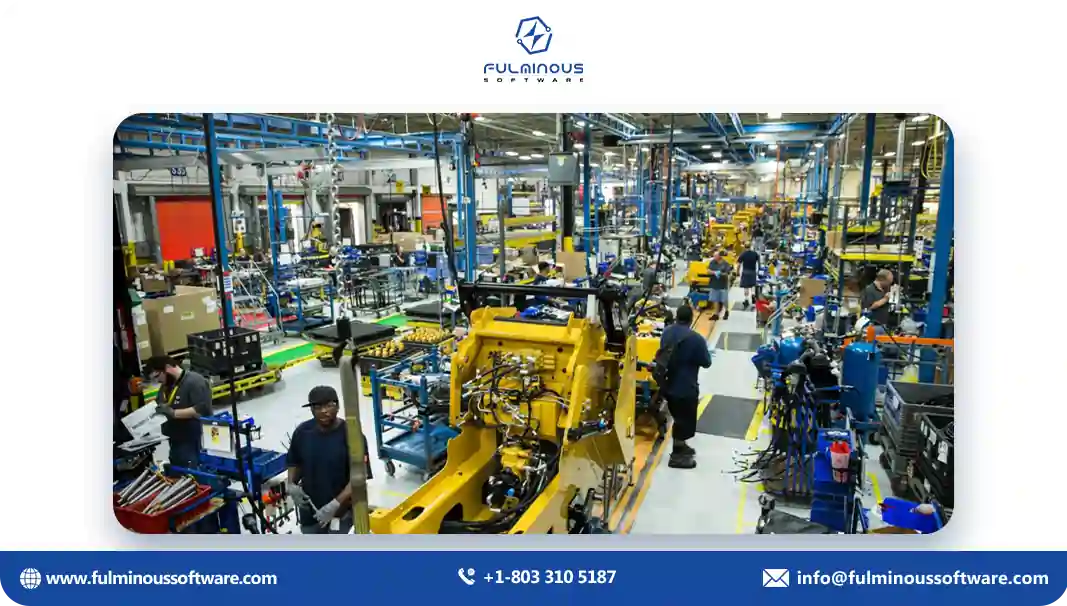
- ABB:
ABB uses robots and AI in their factories to automate complex tasks. This combination of technologies makes their production more efficient and allows them to meet customer demands quickly.
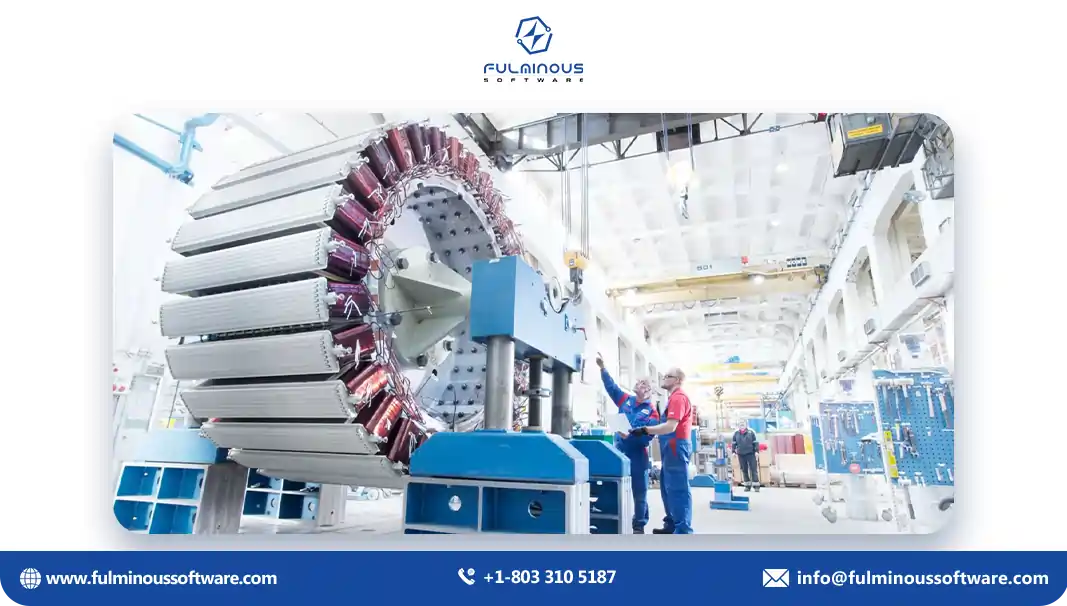
Steps to Create a Successful Digital Transformation Strategy in Manufacturing
- Set Clear Goals: Define what you want to achieve, like improving efficiency, reducing costs, or enhancing product quality.
- Assess Current Capabilities: Evaluate your existing systems and processes.
- Develop a Roadmap: Create a step-by-step plan for implementing digital solutions.
- Choose the Right Technologies: Select technologies that align with your goals, like IoT, AI, or automation.
- Involve Your Team: Train your employees on new technologies and get their input.
- Start Small and Scale Up: Begin with pilot projects to test new solutions. Track key metrics to measure the success of your transformation efforts.
- Stay Adaptable: Be ready to adapt your strategy as new opportunities and challenges arise, ensuring long-term success in your digital transformation journey.
Common Challenges and Its Solutions in Implementing Digital Transformation in Manufacturing
| Challenges | Solutions |
|---|---|
| High Initial Costs |
|
| Resistance to Change |
|
| Complex Integration |
|
| Skills Gap |
|
| Data Security Risks |
|
| Scalability Issues |
|
| Lack of Clear Strategy |
|
| Vendor Dependency |
|
Still Confused? We Have the Solution!
If you’re still unsure about how to handle these digital transformation challenges, it’s a smart move to collaborate with digital transformation experts like Fulminous Software. So that you can feel relaxed and focus on other business activities while they carry out the entire digital transformation process.
Fulminous Software is an expert at helping companies overcome these challenges by developing solutions that are tailored to your unique requirements. A knowledgeable team can assist you in creating a detailed plan, giving your employees the proper training, and ensuring the smooth integration of new technologies.
Working with experts has many more benefits including:
- Minimize downtime
- Steer clear of expensive blunders
- See faster returns on your investment
- Ensures that the solutions are scalable, secure, and aligned with industry best practices.
So it is a smart strategy to collaborate with experts in digital transformation.
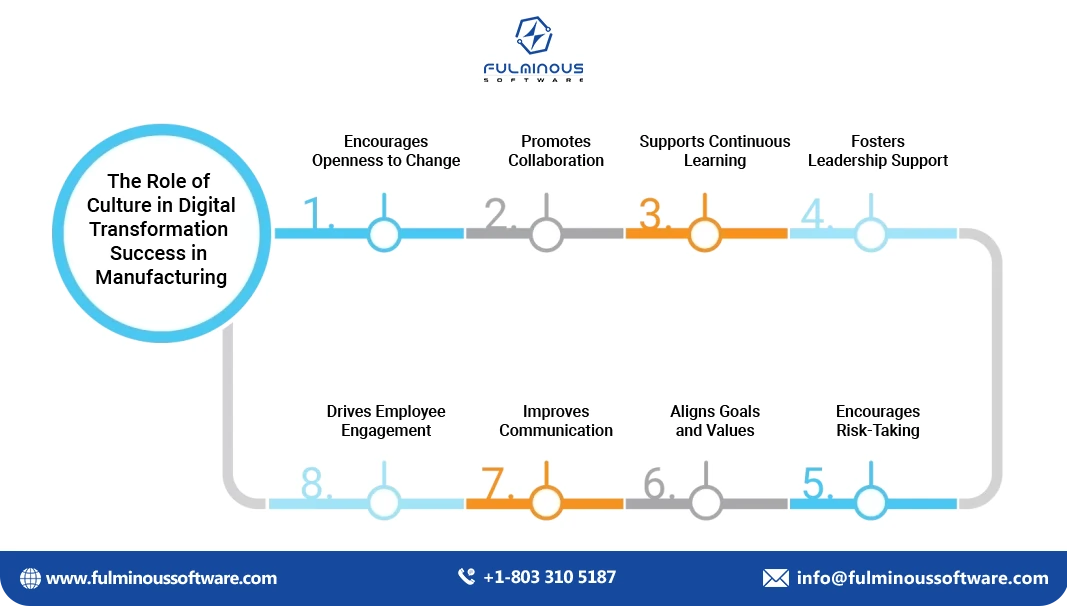
Tips to Track and Measure the ROI of Digital Transformation in Manufacturing
So, if your factory has made the decision to become digital. That's excellent! On the other hand, how can you tell if it's really working? That's where measuring ROI comes in. It's crucial to track and measure the Return on Investment (ROI) of digital initiatives.
- Define Key Performance Indicators (KPIs): Determine which particular indicators best represent the objectives of your digital transformation. This may include increases in quality, cost savings from production efficiency, and customer happiness.
- Establish Baseline Data: Measure how you now do in the areas connected to digital transformation before you get started. Using this, it is easy to compare the outcomes before and after the alteration.
- Monitor Process Improvements: Monitor modifications to production procedures and contrast them with your starting data. To determine the effect of digital tools, measure increases in speed, accuracy, and efficiency.
- Measure Cost Reductions: Determine the savings from fewer mistakes, less physical effort, and cheaper upkeep. To evaluate the financial benefits, compare these savings to the expenses associated with implementing digital technologies.
- Evaluate Quality Enhancements: Analyze improvements in product quality, such as reduced faults and increased client contentment. Increased sales and fewer returns are two benefits of improved quality.
- Analyze Data Utilization: Monitor the efficiency with which your company uses data produced by digital tools. Better corporate outcomes and more informed decisions are frequently the results of better data exploitation.
- Assess Employee Productivity: Track improvements in worker engagement and productivity. Employees should be able to work more productively and concentrate on higher-value tasks with the aid of digital tools.
- Review Customer Feedback: Ask customers for their opinions on how to improve the products and services. Successful digital transformation initiatives may be shown by higher levels of customer satisfaction and loyalty.
- Calculate Return on Investment (ROI): Compare the total benefits gained from digital transformation against the total costs.
- Conduct Regular Reviews: Periodically review and analyze the results to ensure ongoing success. Adapt technology and strategies in response to changing corporate objectives and performance data.
Conclusion
In short, digital transformation is simply adopting the latest technologies and it is essential for manufacturing. It can help your manufacturing business make things faster, smarter, and cheaper. But it's not just about technology; you need a plan, a team, and a mindset that welcomes new ideas.
The rewards are huge. You can make better products, get things done quicker, and beat your competitors. If you don't jump on this train, you might get left behind. The number of manufacturing companies taking benefits of this digital transformation is plenty. Tesla, Ford, Unilever, ABB, and Siemens are only a few of them.
To do it right, start with a clear goal. Pick the right tools, get everyone on board, and keep track of how it's going. Working with experts like Fulminous Software can make things easier. In the end, going digital is the key to growing your business, working more efficiently, and making more money.
If you are interested to learn more let’s have a chat!
FAQs
- Q1: What is digital transformation in manufacturing?
- A: Digital transformation integrates technology like IoT and AI into manufacturing processes to boost efficiency, reduce costs, and adapt to market changes.
- Q2: Why is digital transformation important for manufacturers?
- A: It increases productivity, reduces errors, meets evolving customer demands, and keeps businesses competitive in a rapidly changing global industry.
- Q3: How does IoT benefit manufacturing?
- A: IoT connects machines, enabling real-time monitoring, predictive maintenance, and data-driven decision-making that optimizes production efficiency and reduces downtime.
- Q4: What technologies drive digital transformation?
- A:
- IoT, AI, automation, and cloud computing.
- Big data analytics for better decisions.
- 5G for faster connectivity.
- Q5: What are the benefits of digital transformation?
- A: It enhances operational efficiency, cuts costs, improves product quality, and provides data-driven insights for better decision-making and innovation.
- Q6: What challenges arise in digital transformation?
- A: Challenges include high costs, resistance to change, complex integrations, and workforce skills gaps, all requiring strategic planning and proper training.
- Q7: How do you start a digital transformation strategy?
- A: Begin by setting clear goals, assessing current processes, choosing the right technologies, involving employees, and scaling up gradually after pilot projects.
- Q8: Why do companies resist digital transformation?
- A: Resistance often stems from high costs, fear of change, lack of skilled workers, and uncertainties about integrating new technologies into existing systems.
- Q9: What if a business ignores digital transformation?
- A:
- Loses competitiveness and higher costs.
- Difficulties attracting talent.
- Lower customer satisfaction.
- Q10: How do manufacturers measure ROI in digital transformation?
- A: ROI is measured by tracking key metrics like cost savings, process improvements, product quality, and customer satisfaction to evaluate the success of digital initiatives.
HIRE A TOP SOFTWARE DEVELOPMENT COMPANY

 Verified
Expert in Software & Web App Engineering
Verified
Expert in Software & Web App Engineering
I am Manish Kumawat, co-founder of Fulminous Software, a top leading customized software design and development company with a global presence in the USA, Australia, UK, and Europe. Over the last 10+ years, I am designing and developing web applications, e-commerce online stores, and software solutions custom tailored according to business industries needs. Being an experienced entrepreneur and research professional my main vision is to enlighten business owners, and worldwide audiences to provide in-depth IT sector knowledge with latest IT trends to grow businesses online.
Partner with Top-Notch Web Application Development Company!
Discuss your Custom Application Requirements on info@fulminoussoftware.com or call us on +1-903 488 7170.
15 Days Risk-Free TrialRecommended Articles


